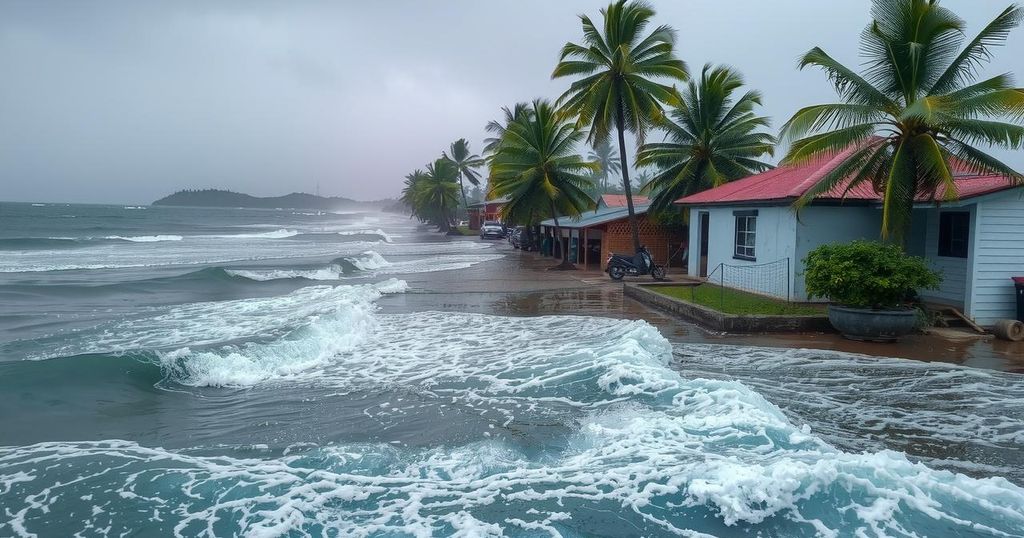Mozambique Faces Humanitarian Crisis Amid Cyclone Chido Catastrophe

Tropical Cyclone Chido has significantly impacted Mozambique, with approximately 329,510 individuals affected across Cabo Delgado, Nampula, and Niassa. Severe damage to homes and essential services has increased vulnerabilities, particularly among IDPs. Response efforts are challenged by limited resources and overwhelming needs.
On December 20, 2024, the escalating situation in Mozambique due to Tropical Cyclone Chido has come to the forefront. As assessment and response teams reach more affected areas, it has become apparent that the number of people impacted continues to rise. Currently, approximately 65,282 families, translating to around 329,510 individuals, have been reported affected across the provinces of Cabo Delgado, Nampula, and Niassa. This calamity has significantly exacerbated the vulnerabilities faced by internally displaced persons (IDPs) and local communities already beset by ongoing conflict.
The cyclone has inflicted severe damage, destroying 39,133 homes and damaging an additional 13,343, displacing families and subjecting them to increased protection risks. The onset of the rainy season is expected to worsen their plight. Additionally, the cyclone has damaged 49 healthcare facilities and disrupted essential water systems, which raises the risk of disease outbreaks among the communities. Moreover, vital agricultural resources have been compromised with the destruction of distributed seeds, necessitating an urgent replenishment to avert external aid dependence.
In response, humanitarian partners are actively mobilizing efforts to meet the immediate needs of the affected populations, focusing particularly on shelter, food, water, health, and protection services. However, challenges persist due to overstretched capacities and diminishing stockpiles, impeding the rapid scaling of assistance. The Mozambique Humanitarian Country Team, alongside Development Cooperation Partners, is mobilizing resources to support government initiatives aimed at addressing these urgent needs effectively.
The report on Tropical Cyclone Chido encapsulates the humanitarian crisis unfolding in Mozambique, particularly across the provinces of Cabo Delgado, Nampula, and Niassa. Historically, the region has faced numerous challenges, including conflict and natural disasters, thus exacerbating the vulnerabilities of its population. The cyclone’s impact is multifaceted, affecting shelter, health services, and water quality, and it underscores the dire need for a coordinated humanitarian response. Given the ongoing rainy season, the situation is poised to worsen, necessitating immediate action and support from both domestic and international actors.
In summary, Mozambique faces a mounting humanitarian crisis following the devastation inflicted by Tropical Cyclone Chido, with a reported 329,510 individuals affected across several provinces. The extensive damage to homes, healthcare facilities, and agricultural resources has intensified vulnerabilities, particularly for IDPs and host communities. While response efforts are underway, significant challenges, including limited capacity and resource constraints, hinder the scaling of assistance. Immediate action is essential to alleviate the plight of those affected and to prevent further degradation of their living conditions.
Original Source: reliefweb.int







